Mandatory Games you should be able to create
If you fancy yourself a game design/developer, there are a few games you should be able to create, in my opinion. Call this the ‘mandatory games‘ for everyone in gamedev.
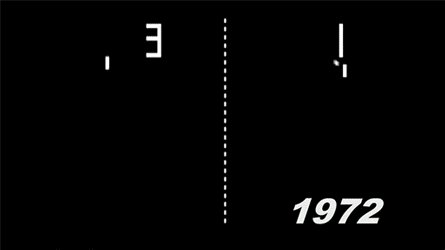
There's one mistake most people trying to start in game design/game development are making all the time. I did it too. I'm still doing it. That mistake is: trying to create a huge game, your "vision", right away.
Sure, you have this idea for this open world D&D-based MMORPG set in a procedural realistic sci-fi universe, and the game is gonna be *amazing*, but are you sure you're ready to do it? "But I have an amazing idea", you might say. Which is good: ideas are important, it's what keeps you motivated and innovating, and good ideas are great! On the other hand: the most successful videogame franchise is an italian plumber traveling through pipes, stomping turtles, fleeing from flame-throwing flesh-eating plants and growing by eating mushrooms.
The idea, the setting, the mechanics, it might be the best and most innovative in the world, or just a boring idea, a crazy concept, something heavily... inspired by other games (or books, movies, songs, ... ), but the execution on the idea is the crucial part. The game has to be done. It has to be finished, it has to be as bug-free as possible, it has to be smooth, and most importantly: it has to be fun. No, that's not it: it has to enable fun experience.
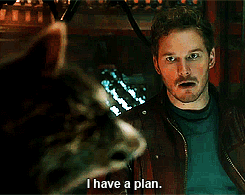
So what do you do with your amazing idea? Write it down! File it away, make sure you won't loose it, but don't try to execute it yet.
Start small. Start simple.
Make something very basic, but try to finish it. Try to not only have a prototype, but to actually polish your minimum game. No matter if it's only 1 level, if it's a 15-second experience (Super Hexagon, I'm looking at you!), polish it, finish it and then release it.
Why? well, first of all: if you actually do this, you are already ahead of most other "game developers". If you go around game design schools, game creator events, etc., it's incredible how many people you will meet how are game creators, maybe since a few years, and still have released nothing. And then they complain they don't earn any money with making games.
Then you have the hordes of creators whining about the "Indipocalypse", and how a few lucky creators got successfully - but it's impossible to make money making games, and if you look at what this "victims of the market saturation" actually released, it's mostly bug-ridden prototypes assembled with bought assets.
So, if you create a prototype, finish it, polish it, and release it: congratulations, you're on the best way to be a successful game designer!
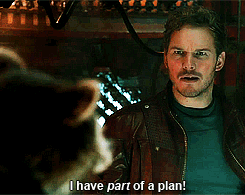
Now you have to decide what kind of game you should make: there are a ton of options, and you probably have a few ideas already. How to choose what to do? Well, let's see at what you should do as soon as you figured out what to do: create a minimum viable product for your game. (There's an excellent Extra Credits video about what a minimum viable product for a video game is). So what should be this minimal playable game-prototype be about? How about we look at the difficulty to create such a prototype. According to the aforementioned video, the genre breakdown, form easiest do hardest, is as follows:
- Racing Game
- Top Down Shooter
- 2D Platformer
- Color matching Puzzle Game
- 2D Puzzle Platformer
- 3D Platformer
- FPS
- JRPG
- Fighting Game
- Action Adventure
- Western RPG
- RTS
This list is generally a good one to follow, and you should try to stay close to it (creating a minimum game should be done fairly quickly, so stay away from the really complicated stuff), and while brainstorming, this might be a good list to follow. Create this minimum viable prototype, maybe add just a bit more content, polish it, fix all bugs, playtest it, make it fun to play, see if your testers are having a good experience, and then release it.
Congratulations: you just made a game! Simple, short, but you made it!
Now, should you charge money for this? It depends, of course, but generally I would say: HELL NO! This is an exercise, maybe a prototype to ask for funding, maybe a promise for more to come, a demo of what you can do, maybe a means to ask for donations or a first in a series of mini-games, but as a stand-alone game, this should generally not be charged for.
You should probably also iterate this concept a few times: create a few simple small minimal games, put them out there, and learn as much as you can during this process.
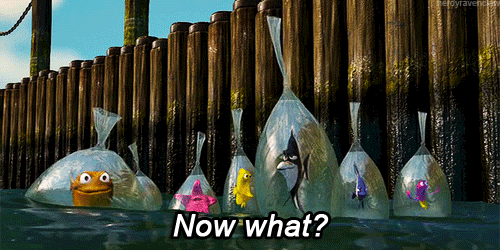
You're out there now, people might start to notice you, you have the skills, you may even be able to realize bigger projects already. But you still need to keep training, refining your skills, testing new engines, new techniques, new hardware, new project management strategies, ... In this industry, probably in more then any other, you never stop learning, and never should stop practicing.
So, what should you do now?
Well, there are a bunch of Games every creator should be able to create: not only because they're simple enough that they're good ways to assess your skills, but also because they will help you explore all kind of genres, and will give you good base-cases to assess possible difficulties in upcoming projects.
Creating this games could be an awesome learning experience for people starting out, or a good way to practice your skills for seasoned professionals. This games have all been copied a million times, and there's a reason for it: they work. Simple concepts, solid mechanics, interesting gameplay.
The games you create during this .. let's call it "project" shouldn't be stand-alone games you will sell: strictly they're copies of existing games. You can always release those games as examples, but not more. Now, you could apply a twist on this projects: recreate them for VR, create a gorgeous art style set in the Zulu wars, make it work on a Smartwatch, let it be controlled by voice commands, have awesome narration, ... the possibilities are infinite. At this point you not only made an exercise in game creation: you actually made a game. Sure it's inspired by some other game, but every game is inspired by some other game (Everything is a remix, after all), but this is your take on an idea. Be proud of it! This could even be you first game you release commercially, or an example to be featured on your curriculum, or be used for some contest, ... this is a real game! Good job!

You're probably eager to know what games would "mandatory" for every games developer, what games everybody should be able to create, and should, at least once in their career, tried to create. There are of course a lot of games worthy of being in such a collection, but let's try to sum it up:
- Tetris (Or similar arcade puzzles - like Blockout, Pinball, Puyo Puyo, ...)
- Bomberman (Or similar top-down shooters, other examples would be Asteroids, GTA, Space Invaders, Raptor, ...)
- Super Mario (Or similar 2D platformers, for example Donkey Kong, Ducktales, Sonic the Hedgehog, ...)
- Dr. Mario (Or other match-3 games or color puzzles like Bejeweled, Puzzle Bobble, ...)
- Castlevania (Or similar platform "shooter", similar to Prince of Persia, Contra, Metroid, Metal Slug, ...)
- Virtua Racing (Or other racing games - Excitebike, Need For Speed, Crazy Taxi, Super Mario Kart, ...)
- Pong (Or other simple sports games, Ice Hockey, FIFA International Soccer, ...)
- Pac-Man (Or other top-down labyrinth games like Snake, Frogger, ...)
- Street Fighter (Or other simple fighting games, for example Mortal Kombat, Tekken, ...)
- Rampart (Or other Tower Defense/Real Time Strategy Games, like Age of Empires, Warcraft, Herzog Zwei, ...)
- The Incredible Machine (Or other physics puzzles like Portal, Bridge Builder ...)
- Lemmings (Or other creature control puzzles, among which we have Worms, Liero, ...)
- Quake (Or other creature first person games like DuckHunt, Wolfenstein or Counter Strike)
- Crash Bandicoot (Or other 3D platformer like Super Mario 64, Banjo-Kazooie, Tomb Raider, ...)
- Rogue (Or other dungeon crawlers/rpg's for example Shadowrun, Ultima, Dwarf Fortress, NetHack ...)
- Zorg (Or other adventure games like Money Island, Day of the Tentacle, Spellbreaker ...)
That's a nice long list, isn't? But it's all just "old" games - do the skills I'll learn apply in any way to modern game development?
Let's look at a few "small" or "indie" modern commercial or critical successes, in no special order:
- Flappy Bird
- Candy Crush Saga
- Fez
- Super Meat Boy
- Braid
- Next Car Game
- Threes
- Hotline Miami
- Super Hexagon
- Broforce
- Rocket League
- Awesomenauts
- Grip
- Angry Birds
- World of Goo
- Spelunky
- FTL
- Crypt of the Necrodancer
- NetHack
As you can see, all of them are just one (or more) of the "mandatory games", but with an added twist, nicer graphics, or simply adapted to modern technologies. Even if there's no new idea, it is simply great execution! The one main characteristic I would attribute to most of this games: they enable the player to have great experiences!
No matter if it's living a deep emotional story, or having the adrenaline rush of scoring the decisive goal, the experience is created by the player, inside of a world created by the game developer. And creating this worlds in a seamless, immersive and interesting way is the art, the craft, the skill a game designer has to be proficient with.
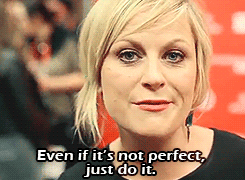
You want to be a game creator? What are you waiting for! You are a game developer? Go improve your skills! You just formed a new team and want a project to get to know each other better? Go ahead!
Seriously, those "mandatory games", although not mandatory, you really should make them! Go create theme!
Go make a Flappy Bird clone! Maybe with a twist!
Go make a Tetris clone! Possibly add a twist?
Go make a Bomberman clone! Add an awesome twist! (I am serious, this is amazing)
Go make a Zorg clone! Add crazy twists! Add graphics!
But most importantly: make some games!